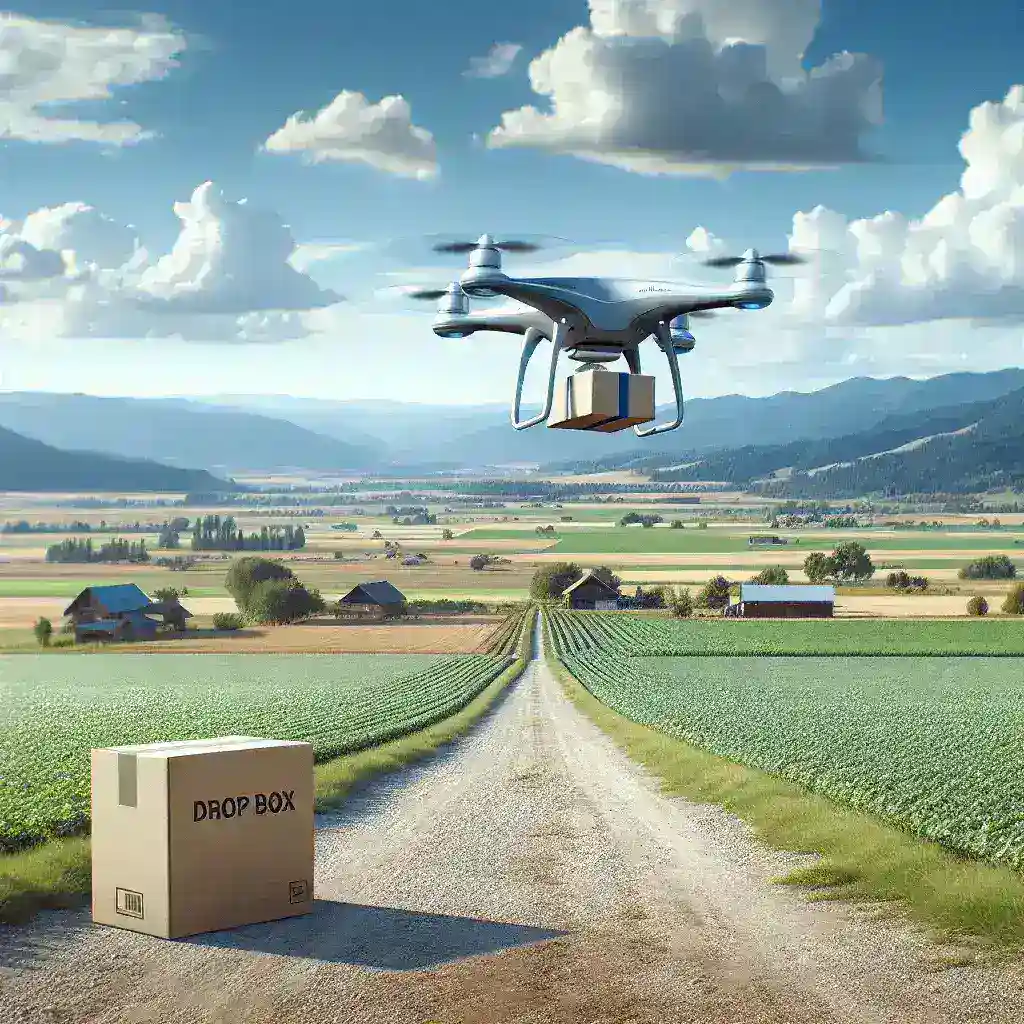Introduction
In an era where technology continues to redefine our everyday experiences, the logistics industry stands at the forefront of innovative advancements. One of the most exciting developments has emerged from UPS, a global leader in logistics and package delivery. The company has begun testing AI-powered drone drop boxes in rural regions across the United States, a project that promises to transform the way goods are delivered to remote areas. This article delves into the implications of this technology, examining its historical context, potential benefits, challenges, and what the future may hold for rural logistics.
The Historical Context of Drone Delivery
The concept of drone delivery is not entirely new. The roots of this innovative idea can be traced back to the early 2010s when various companies began experimenting with unmanned aerial vehicles (UAVs) for delivery purposes. Amazon was one of the first major corporations to publicly announce its interest in drone delivery, sparking a wave of interest and innovation across the logistics sector. UPS, recognizing the potential for drones to enhance delivery services, has been exploring this technology for years.
The Evolution of UPS’s Drone Initiatives
UPS initiated its drone delivery program in 2016, focusing on delivering medical supplies to remote areas. Over the years, the company has refined its technology, collaborating with drone manufacturers and regulatory bodies to ensure compliance with safety standards. The introduction of AI-powered drone drop boxes represents a significant leap forward in UPS’s commitment to improving service delivery in underserved locations.
Understanding AI-Powered Drone Drop Boxes
At the heart of UPS’s initiative are the AI-powered drone drop boxes. These automated systems are designed to receive and dispatch packages autonomously, utilizing advanced algorithms to optimize delivery routes and times. Here are some essential features of these drop boxes:
- Autonomous Operation: The drop boxes operate independently, allowing for seamless package pickup and drop-off without human intervention.
- AI Integration: Equipped with artificial intelligence, the boxes can analyze data, predict user needs, and adapt to changing environments.
- Enhanced Security: The drop boxes are designed with security features to prevent unauthorized access, ensuring that packages remain safe until collected.
- Environmentally Friendly: Drones offer a reduced carbon footprint compared to traditional delivery vehicles, aligning with global sustainability goals.
The Benefits of Drone Drop Boxes in Rural Areas
The implementation of AI-powered drone drop boxes in rural regions presents numerous advantages:
Improved Accessibility
Many rural communities struggle with access to essential goods and services due to geographic and logistical challenges. AI-powered drone drop boxes can bridge this gap by providing reliable delivery options tailored to the unique needs of these areas.
Efficiency and Speed
With the ability to operate autonomously and optimize delivery routes in real-time, drones can significantly reduce delivery times. This efficiency is especially crucial in emergencies, where timely access to medical supplies or other necessities can make a difference.
Cost-Effectiveness
By minimizing reliance on traditional delivery vehicles and staff, UPS can reduce operational costs, which may lead to lower delivery fees for customers. This cost-effectiveness is vital for rural residents who may already face financial constraints.
Enhanced Customer Experience
AI-powered drop boxes offer a modern, user-friendly experience. Customers can track their packages in real-time, receive notifications, and enjoy the convenience of 24/7 access to their deliveries.
The Challenges Ahead
While the potential benefits of AI-powered drone drop boxes are significant, several challenges remain:
Regulatory Hurdles
The integration of drones into the existing airspace and logistics framework necessitates navigating complex regulatory environments. UPS must collaborate with the Federal Aviation Administration (FAA) and other agencies to ensure compliance with safety standards.
Technological Limitations
Despite advancements, drones face limitations, including payload capacity and battery life. UPS will need to continuously innovate to address these constraints and meet customer expectations.
Public Acceptance
As with any new technology, public perception plays a crucial role in its success. Building trust and acceptance among rural residents is essential for the widespread adoption of drone drop boxes.
Future Predictions for Drone Delivery in Rural Areas
As UPS continues to refine its AI-powered drone drop box initiative, the future looks promising. Experts predict that within the next decade, drone delivery could become a standard practice in rural logistics, reshaping the way goods are transported and delivered. Here are some potential trends:
- Increased Collaboration: UPS may forge partnerships with local businesses and communities to create a network of drop boxes, enhancing service reach and accessibility.
- Technological Advancements: Continued innovations in drone technology, including improved navigation systems and enhanced payload capabilities, will likely expand the scope of drone-based delivery.
- Integration with Smart Cities: As urban areas increasingly adopt smart technologies, rural regions could benefit from similar advancements, facilitating seamless connectivity and logistics.
Conclusion
The testing of AI-powered drone drop boxes by UPS in U.S. rural regions marks a significant milestone in the evolution of logistics. This initiative promises to enhance delivery efficiency, accessibility, and customer experience while addressing the unique challenges faced by rural communities. As UPS navigates regulatory hurdles and technological advancements, the future of drone delivery in rural areas looks bright, paving the way for a more connected and efficient logistics landscape.
Engagement with the Community
As UPS embarks on this transformative journey, engaging with local communities will be crucial. By understanding the specific needs and concerns of rural residents, UPS can tailor its services effectively, ensuring that the benefits of drone drop boxes are realized by all. This collaboration could serve as a model for future logistics solutions, empowering rural areas to thrive in an increasingly digital world.


Leave a Reply